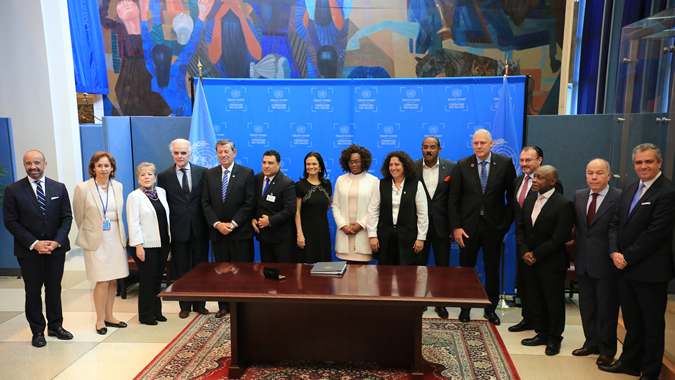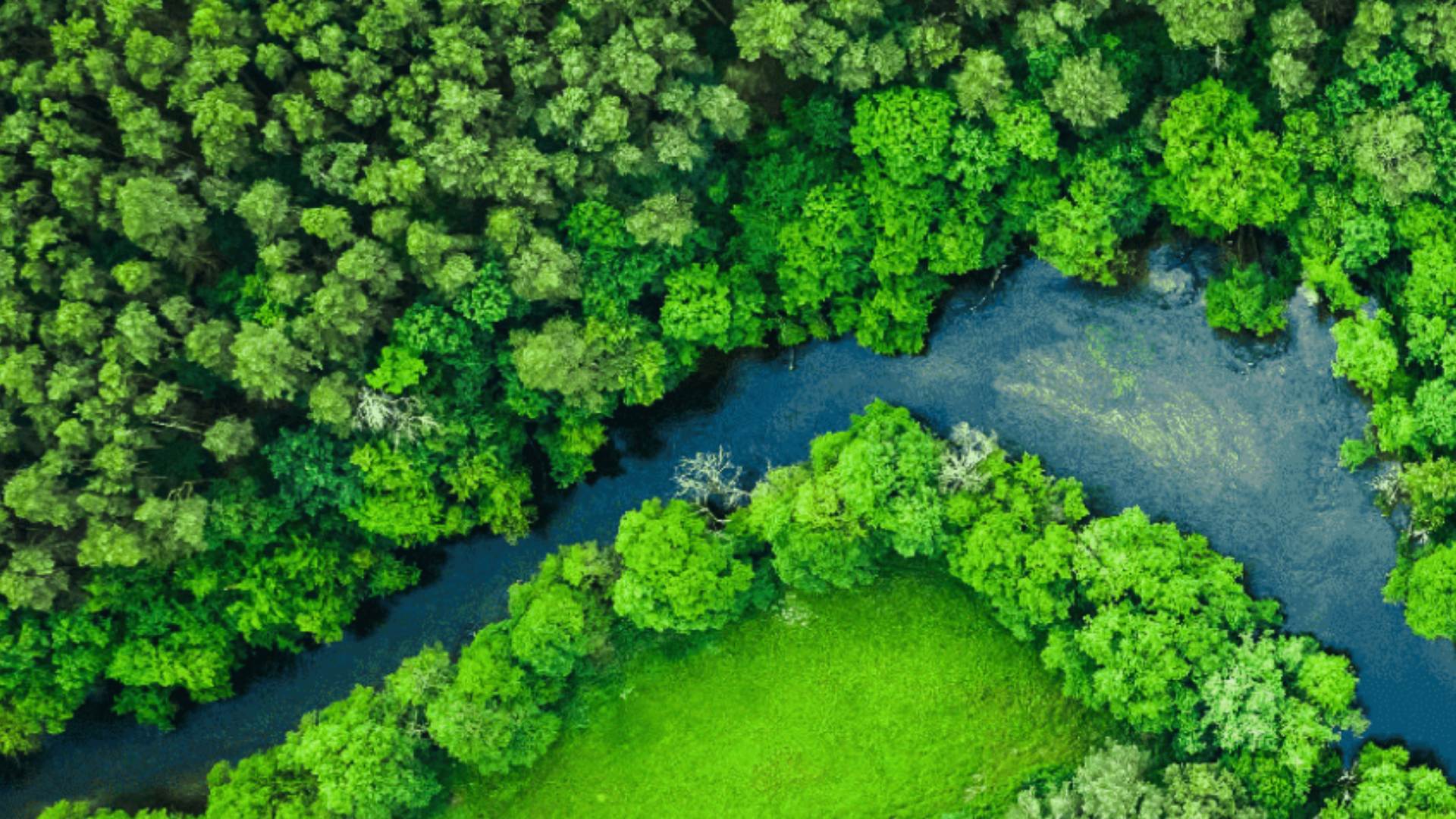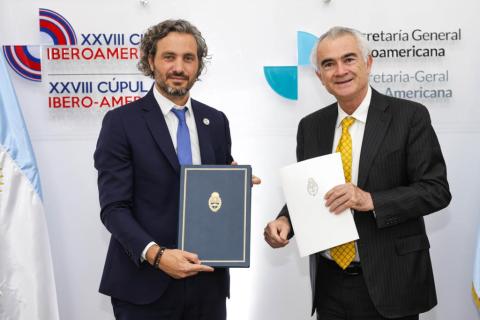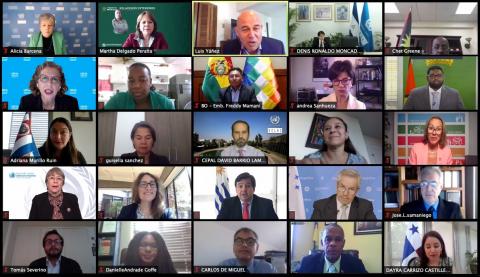Briefing note
Fourteen Latin American and Caribbean countries were the first to sign the “Escazú Agreement” on Access to Information, Public Participation and Justice in Environmental Matters, at United Nations headquarters in New York, in the context of the 73rd session of the general debate by the world organization’s General Assembly.
The historic Regional Agreement, the first environmental treaty of Latin America and Caribbean and the only of its kind in the world to emerge from the United Nations Conference on Sustainable Development (Río+20), will be available as of today for signature by any State that wishes to do so, for its subsequent ratification. The ratification, acceptance or approval of the agreement may take place after signing; 11 States-party must do so for to enter into effect.
In an emotional ceremony this morning at United Nations Headquarters in New York, Chiefs of State and ministers from the following countries signed the Agreement: Antigua and Barbuda, Argentina, Brazil, Costa Rica, Ecuador, Guatemala, Guyana, Mexico, Panama, Peru, Saint Lucia and Uruguay. In the afternoon, Dominican Republic and Haiti also added their signatures to the legal instrument.
The event was led by Miguel de Serpa Soares, Deputy Secretary General for Legal Affairs and Legal Advisor to the United Nations, and included special participation by Epsy Campbell Barr, Vice President and Minister of Foreign Affairs and Worship for Costa Rica, the Prime Ministers of Antigua and Barbuda and Saint Lucia –Gaston Browne and Allen Michael Chastanet, respectively – the Vice Presidents of Guyana and Panama – Carl Greenidge and Isabel de Saint Malo de Alvarado, respectively – the Ministers of Foreign Affairs and Permanent Representatives to the UN of the remaining signatory countries, and Alicia Bárcena, Executive Secretary of the Economic Commission for Latin America and the Caribbean (ECLAC), Technical Secretariat of the Agreement.
“Our region has taken an enormous leading step to make environmental democracy a reality,” said Epsy Campbell, Costa Rica’s Vice President and Minister of Foreign Affairs and Worship, the country where the agreement was adopted (in the municipality of Escazú).
“It is a contribution from the region for global multilateralism. It allows us to have the first binding environmental treaty in the entire region and this is a very substantial step. It makes reference to something that for Costa Rica is very important, because it places citizen action and environmental defenders at the center, something that is fundamental for confronting all the challenges we face in environmental matters,” Campbell said later at a press conference she and Alicia Bárcena, ECLAC’s Executive Secretary, offered after the ceremony.
“The fact that 14 countries have already signed today is extraordinary. This agreement was necessary. Democracy not only has to do with participation but also with what we do with our resources, how we look toward the future. I invite the countries that have not signed to so do as soon as possible, so that very soon, once we have the corresponding ratifications, the Escazú Agreement will enter into force as a substantive step in democracy in the region,” added the Vice President of Costa Rica.
Meanwhile, Alicia Bárcena remarked to the authorities present at the ceremony that today “is a historic day for environmental equality in the region. After six years of intense preparation, the Escazú Agreement was adopted on March 4 in Costa Rica, with significant participation by the public. Today, September 27, you are all taking a decisive step toward achieving environmental democracy and making the agreement a reality,” she said.
The United Nations senior official also underscored that, even though this agreement is between States, it is also a compact between the States and their societies. “Above all, it is an agreement for citizens, made by and for people,” she said.
During the press conference, Bárcena also explained that the process of the agreement is also innovative because it has incorporated civil society as a whole, i.e. all groups representing the “public interest.” She emphasized furthermore that this agreement has one very significant article that no other previous treaty has specifically included, which is the protection of the defenders of human rights in environmental matters.
Bárcena explained that the treaty signing process starting today will go on for a period of two years at United Nations Headquarters, since it is a UN agreement and will remain officially deposited there as part of the treaties sponsored by the world organization. After signing it, each country must commence the corresponding paperwork for its ratification.
The Escazú Agreement seeks to ensure that all people have access to timely and reliable information, can participate effectively in the decisions that affect their lives and their surroundings and access justice in environmental affairs, thus contributing to the fulfillment of the 2030 Agenda and its Sustainable Development Goals (SDGs).



